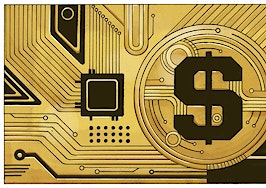Real estate is the original asset.
Some of the first laws ever drafted dealt with ownership. Ancient Mesopotamian codices include phrases like, “this house belongs to [insert ancient sounding name here] and his sons forever.” The Tenth Commandment states, “Thou shalt not covet thy neighbor’s house,” so the similar idea of land possession existed in ancient Israel as well.
Land obviously has immense value, for the security it provides and the production it enables. But the value of land is locked into ownership rights. There are different, independent rights of ownership that are collectively referred to in real estate law as the bundle of rights.
The first, most primitive right is the right of possession. On a basic human-need level this is the most obvious value of land: a place to inhabit. After that there are other fundamental rights like the right of enjoyment, the right of control and the right of exclusion.

Credit: Pedro Correa
Most residential leases today give the tenant the rights of possession and enjoyment, but the property owner retains the right of control. The tenant also gets the right of exclusion, but this right does not apply to the owner, who is allowed to enter the property as long as sufficient notice is given.
There is another right, which is a little less straightforward, called the right of disposition. It lets the holder sell, rent or transfer a property at will. Sublease clauses are one way to give a tenant at least part of the right of disposition, but they don’t give him or her the ability to sell or transfer the lease without permission. Most homeowners probably don’t realize they’ve never had the full right of disposition, instead trading it for the ability to secure a mortgage.
These modern theories of ownership rights go back as far as the Magna Carta and have been ironed out through every land dispute since. There are inherent limitations to legal precedent, though, mostly because it requires legal intervention, which is costly and time intensive.
The limits of real estate contract law allow an opportunity that technologists are now looking to exploit, the same way cryptocurrencies like bitcoin are finding a home at the edge of the financial system.
The meteoric rise of bitcoin, both in monetary value and as a piece of the collective conversation, has put blockchain technology in the public eye. But the technology is only in its infancy. If and when it gets fully adopted into our real estate system, it has the power to completely transform the way we think about property ownership rights.
Primalbase, digital tokens and the rise of the coworking space
The notion that blockchain could change the way we own property has been bouncing around in my mind for a while, but it wasn’t until I came across the way it was being used in a unique coworking space that it really started to solidify. The company is called Primalbase, an Amsterdam-based coworking startup that now has an office in the Dutch capital and another in Berlin.
If it strikes you as odd that Amsterdam, rather than Silicon Valley or New York, would be a place where technology is being used to change the way ownership rights are conveyed, it shouldn’t. Amsterdam is becoming one of Europe’s tech hubs due to what investinholland.com, the official site of the Netherlands Foreign Investment Agency, describes as a “supportive corporate tax structure, a highly educated, multilingual workforce and a superior logistics and technology infrastructure.”
Plus, the Dutch know a little about creative ownership. They are credited with starting the world’s first “modern” stock exchange when it needed to raise money for new ships during the Age of Empire. The success of this venture created what was the largest company ever, the Dutch East India Company.
The inflation adjusted value of the Dutch East India Company at its height was around $7 trillion dollars, around 10 times the market cap of Apple, today’s biggest public company.
Primalbase functions as a traditional shared workspace, renting out high-quality offices and shared spaces to companies and individuals. The company decided to offer digital tokens built on Waves and Ethereum blockchains to potential residents during a crowdsale campaign in June 2017.

Credit: Pedro Correa
By doing this it solved two essential problems: it covered the initial expenditures for the buildout and fostered a core community of regular users.
Token owners are given the ability to book a space in one of the Primalbase locations (a second outpost opened in Berlin in December, and there are plans for more in New York and London in the near future.).
Holders of PBT, the official abbreviation for the currency, can also lease tokens to other parties via a Primalbase platform or trade them on cryptocurrency exchanges. As more locations open and more people learn about the project , the value of the currency is expected to increase.
Tokens represent a new way to package the bundle of rights for a property. A token does not grant you any property per se, but it does make certain rights available. The right of possession and enjoyment, for example. Anyone with a PBT token in their digital wallet can use the communal spaces in any of the locations. Anyone with four PBT can book an available private office. In a way, it’s like owning a membership that allows access to a property.
Primalbase CEO Ralph Manheim talked about what he sees as the main advantage to using tokens as a way of giving access to a space.
“The main objective for us to create ownership mentality via a token is to cultivate a community,” Manheim told me. “We saw that many other coworking spaces were just a collection of part-timers, with no real connection to the other people sitting next to them.”
This connection is further reinforced by the fact that Primalbase users are mostly startups and entrepreneurs in the blockchain space themselves. Connections and access to proven partners is extra valuable in an emerging and fast-moving industry like the blockchain industry.
Commercial real estate has embraced the idea of space as a service, which lends itself to granting certain rights of ownership without becoming a certified owner. It might be only a matter of time until we see a similar business model arise in residential spaces as well.
A personal residence is a far more intimate thing than a place of business, of course. But, if the idea of “housing as a service” take root then the use of blockchain technology to facilitate the exchange might soon follow. If the current trend of the younger generations being more comfortable as lifelong renters continues, it might not be long before these ownership scenarios arise.
Transferring ownership
Creative new ways to transfer certain rights of ownership may seem like semantics, but the implications are huge. By changing how we own a property, like a coworking space, it effectively changes how we value our real estate.
Commercial real estate is primarily valued in two ways. One is to extrapolate a value based on similar, recently sold properties nearby, called comparables. This method can lead to miscalculations since many large buildings only sell once a decade, if that. The other method uses a multiple of lease revenue since often buildings have a long-term lease on the property. This does not account for possible revenue growth and does not do a good job of reflecting values of flexible leasing terms like “coworking,” a growing sector of the office market.

Credit: Pedro Correa
Using a token as a way to create membership to a community has the power to change the entire valuation process. The true market value takes into consideration intangible attributes of a space like the strong community of like-minded individuals that Manheim wishes to create.
WeWork has long understood this distinction. The company has created a coworking empire that is valued on community, not real estate. But it has also had to rely on major outside funding to do so.
Speculation and seemingly endless rounds of investment, ending with an amazing $4 billion funding round from SoftBank last year, have given WeWork a valuation of $20 billion. To put that into perspective, the valuation puts WeWork just shy of the valuation of Boston Properties, the country’s largest publicly traded office landlord. That comes out to be about $130,000 per WeWork workstation.
In a way, the communal ownership rights that technology is enabling harkens back to the original way humans shared land. It creates a sense of membership in a tribe that, as WeWork has shown, can be much more valuable than the property itself.
If we are able to have a more immediate connection to the properties in which we live, work and play, we might see the emergence of a different attitude toward the buildings around us. This is all because technology has been able to separate the bundle of rights that has, for various reasons, been stuck together since the invention of land ownership.
Franco Faraudo is a real estate agent and investor who co-founded the PropTech publication Propmodo to help share the insights and technologies that are changing the way we interact with the built world. He writes about the economic and cultural impacts of the collision between the physical and digital worlds.












